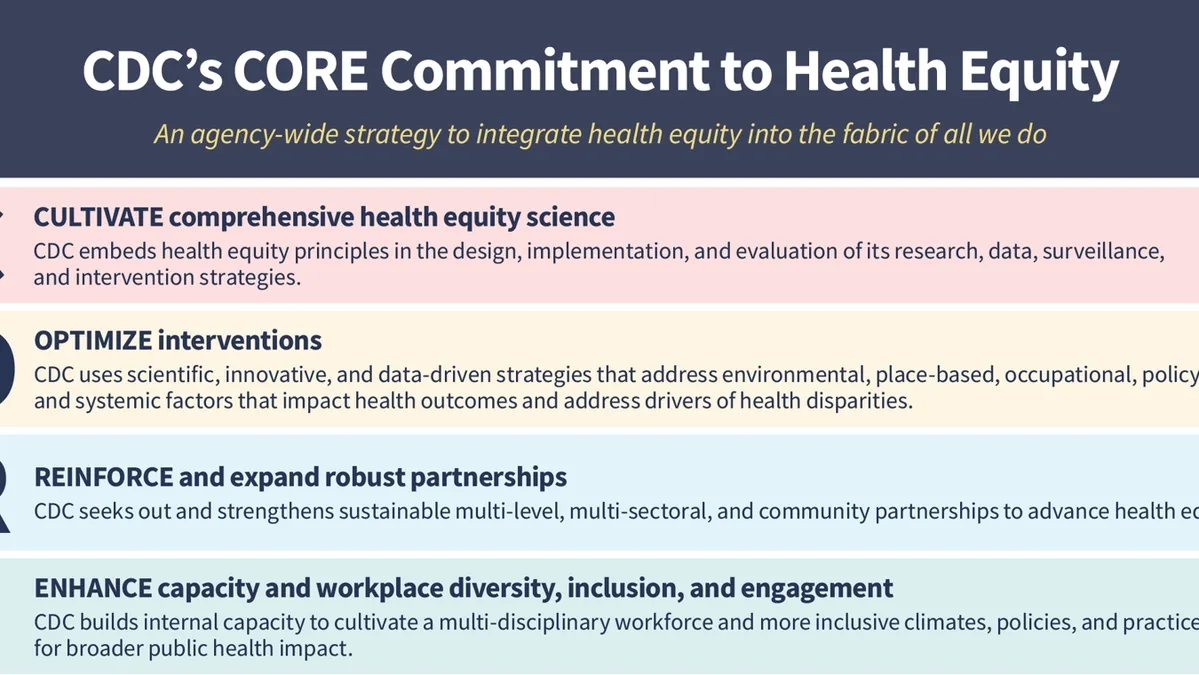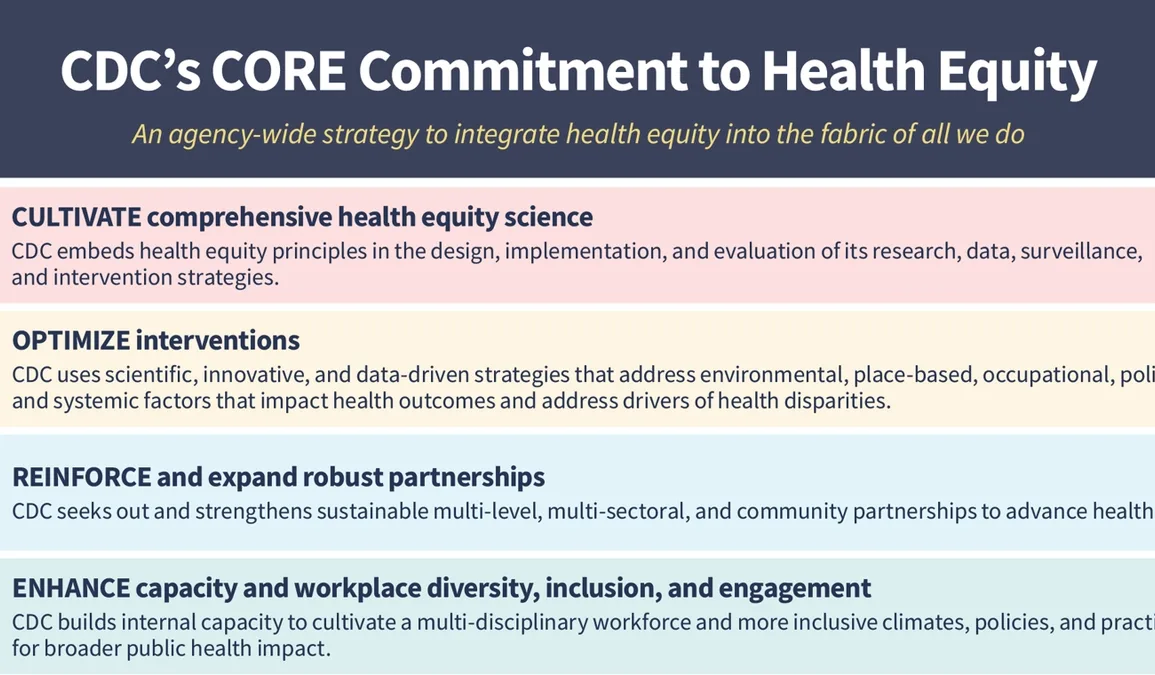
A Focus on Health Equity During Black History Month
As we celebrate #BlackHistoryMonth, it is essential to acknowledge the significant role of public health professionals in reducing health disparities and incorporating health equity principles into the Centers for Disease Control and Prevention’s (CDC) core strategies. This commitment towards health equity contributes to creating a more inclusive and accessible healthcare system for everyone, regardless of their race, ethnicity, socioeconomic status or geographical location. #HealthEquity #PublicHealth
Measuring Health Disparities
Understanding and addressing health disparities require robust and accurate measurements. According to the CDC, disparities can be identified among different racial or ethnic groups, geographic regions, gender identities, and socioeconomic statuses. The CDC emphasizes that there is no gold standard measure for health disparities, but changes in measures over time can indicate progress or setbacks in eliminating these disparities. The use of both pairwise measures and composite measures can offer valuable insights into the health status of different population groups. (source)
Racism’s Impact on Healthcare and Chronic Disease Prevention
The CDC’s Preventing Chronic Disease (PCD) journal addresses the impact of racism on healthcare and emphasizes the importance of medical education in combating systemic discrimination. The PCD also highlights the use of GIS mapping in identifying suitable locations for implementing hypertension management programs specifically tailored for African American communities. By encouraging submissions and offering free subscriptions, the PCD is committed to advancing knowledge and discussion around chronic disease prevention and health equity. (source)
The Importance of Trust and Connection in Healthcare
Dr. TaRessa Wills, a Black female physician featured by CDC’s Project Firstline, talks about the importance of understanding patients’ lived experiences and rectifying false assumptions in medical charts. She strongly believes that creating a safer healthcare environment for Black Americans includes building trust and connecting with patients through shared cultural experiences. Furthermore, she points out the critical role of infection control in building trust and improving patient outcomes, particularly for marginalized communities. (source)
Upcoming Events and Opportunities in Public Health Law and Policy
The CDC provides information on various events, conferences, meetings, and job opportunities related to public health law and policy. These opportunities include the 2024 Public Health Law Practitioners Convening, the 2024 Preparedness Summit, the National Tribal Health Conference, and the International Indigenous Women’s Health Meeting. The CDC also highlights the American Public Health Association’s webinar on incorporating public health principles into transportation planning and engineering. (source)
CDC’s Strategic Plan for Advancing Equity
The CDC is dedicated to addressing inequities and advancing equity through assessing and changing policies, programs, and processes across the Department. The strategic plan focuses on areas such as child neglect, maternal health, behavioral health, clinical research diversity, sickle cell disease outcomes, homelessness prevention, and sexual orientation and gender identity data collection. The goal is to improve outcomes and ensure equitable access to healthcare for all. (source)


